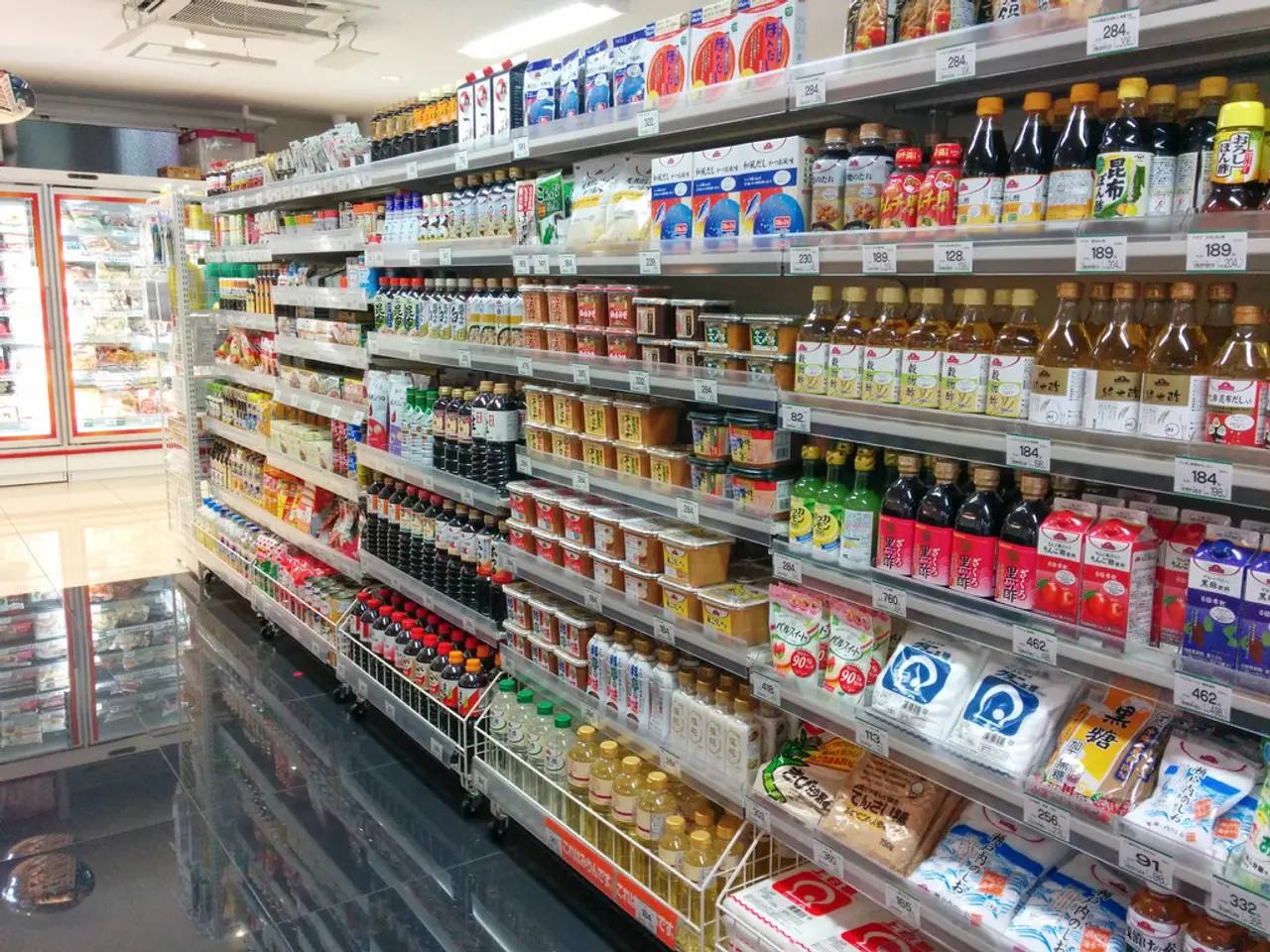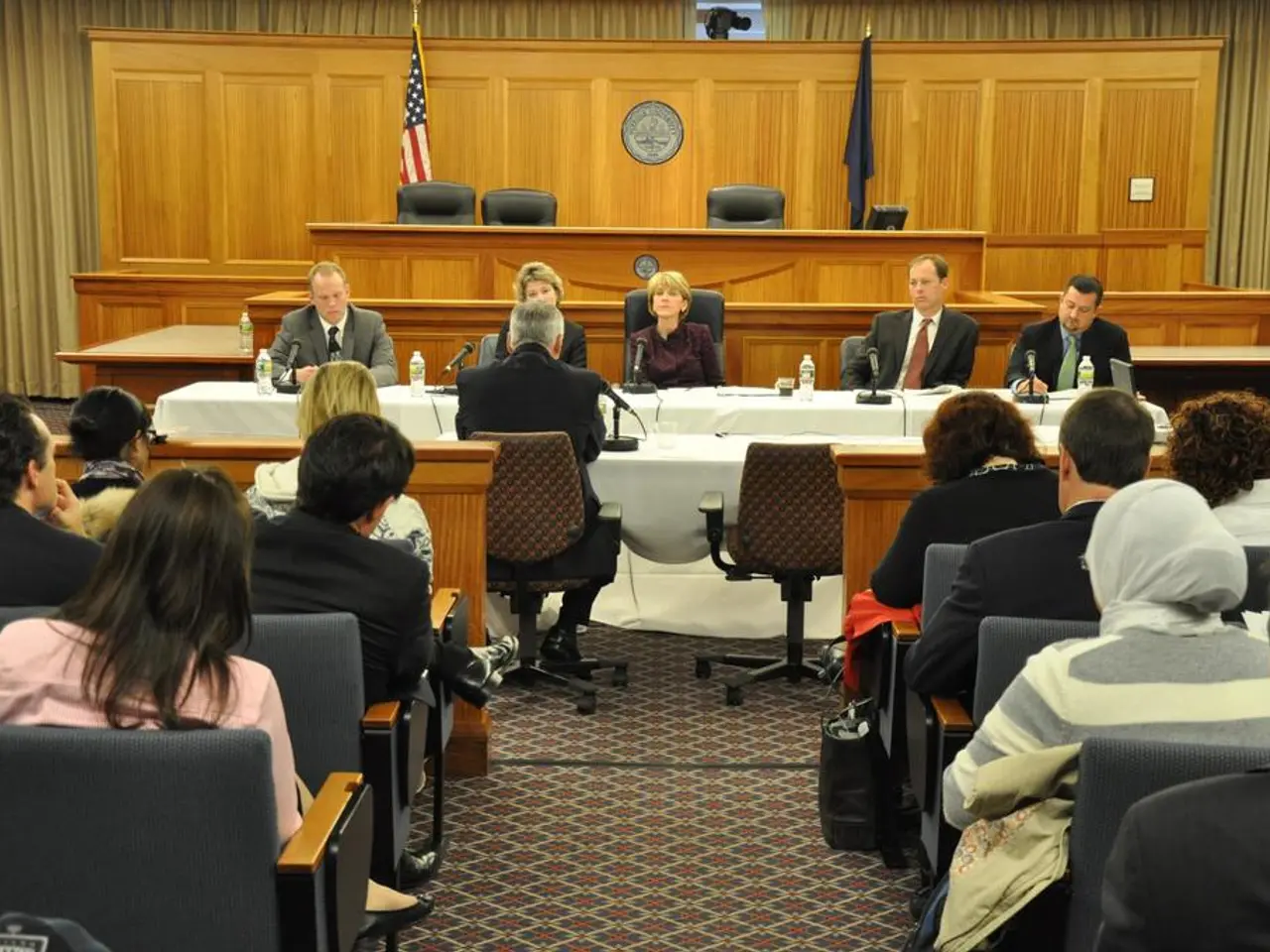Retail Sales Tumble in May: A Setback After a Spending Spree in April
Sales figures in May experienced a decline following the surge in April, yet consumer sentiment shows an upward trend.
Shoppers decided to save their pennies in May, causing retail sales to take a dive by a whopping 2.7%. This dismal performance marks the steepest monthly decline since April 2024, following a splurge of spending triggered by the unseasonably warm weather in April.
The Office for National Statistics reported that all sales categories suffered a setback last month, with food sales plummeting by an astonishing 5%. The drop is the biggest food sales decline since May 2021, indicating that shoppers have cut back on their grocery spending amid rising inflationary pressures.
Scotches and pies, once thought to be favorites on many Brits' shopping lists, ended up as leftovers as consumers took a break from their spending spree. Department stores and non-food stores also experienced a decline, with sales volumes falling by 1.5% and 0.5%, respectively.
Compared to May 2024, overall retail sales volumes now sit 1.3% lower. Despite the dismal showing for May, there was still a 0.8% increase in sales volumes when comparing the three months to May 2025 with the three months to February 2025, and a 1.7% increase compared to the same quarter the previous year. However, retail sales volumes remain 2.7% below their pre-pandemic (February 2020) levels.
GfK's consumer confidence index, a closely watched gauge, gained ground, rising to -18 in June from -20 in May. While Brits held a slightly more positive view on the economic outlook, consumer sentiment still lingers on thin ice, as the possibility of deterioration looms with rising inflation, uncertain tariffs, and escalating fuel prices, particularly in the aftermath of the Middle East conflict.
Sagar Shah, associate partner at McKinsey & Company, commented on the situation, stating that "consumer sentiment and spending patterns are no longer neatly aligned." According to Shah, food inflation reaching its highest level since February 2024 (4.4%) and higher labor costs could be variables impacting retail promotions.
Even with the negative trend, economists acknowledged that there is some cause for optimism in the stabilizing economy and the resilience of household balance sheets despite the rising inflation rates. As consumer confidence continues to rebound, households may gradually ease back on their extraordinary saving rates, potentially kick-starting a recovery in the second half of the year.
Sources:
- UK Retail Sales Volumes, May 2025. (2025, June 15). Office for National Statistics. https://www.ons.gov.uk/economy/retailingandwholesaling/releases/ukretailsales/may2025
- Retail sales drop sharply in May, most devastating slump in April 2024. (2025, June 15). The Guardian. https://www.theguardian.com/business/2025/jun/15/retail-sales-drop-sharply-in-may-most-devastating-slump-in-april-2024
Associated Articles:
- Previous
- 1
- Next
- Stagflation threat returns as Israel-Iran conflict sparks fears oil price could spike above $120 Berkeley reveals leadership shake-up as housebuilder plots for profit
Investors may want to closely watch the retail industry in the coming months, as rising inflation and uncertain tariffs could impact business operations. The finance sector might see changes in mortgage rates due to the economic instability driven by the Israel-Iran conflict and potential oil price spikes. In the retail business, food sales were affected significantly in May, causing a steep drop in overall sales volumes. This development could influence retailers' strategies for promotions and investment plans.




